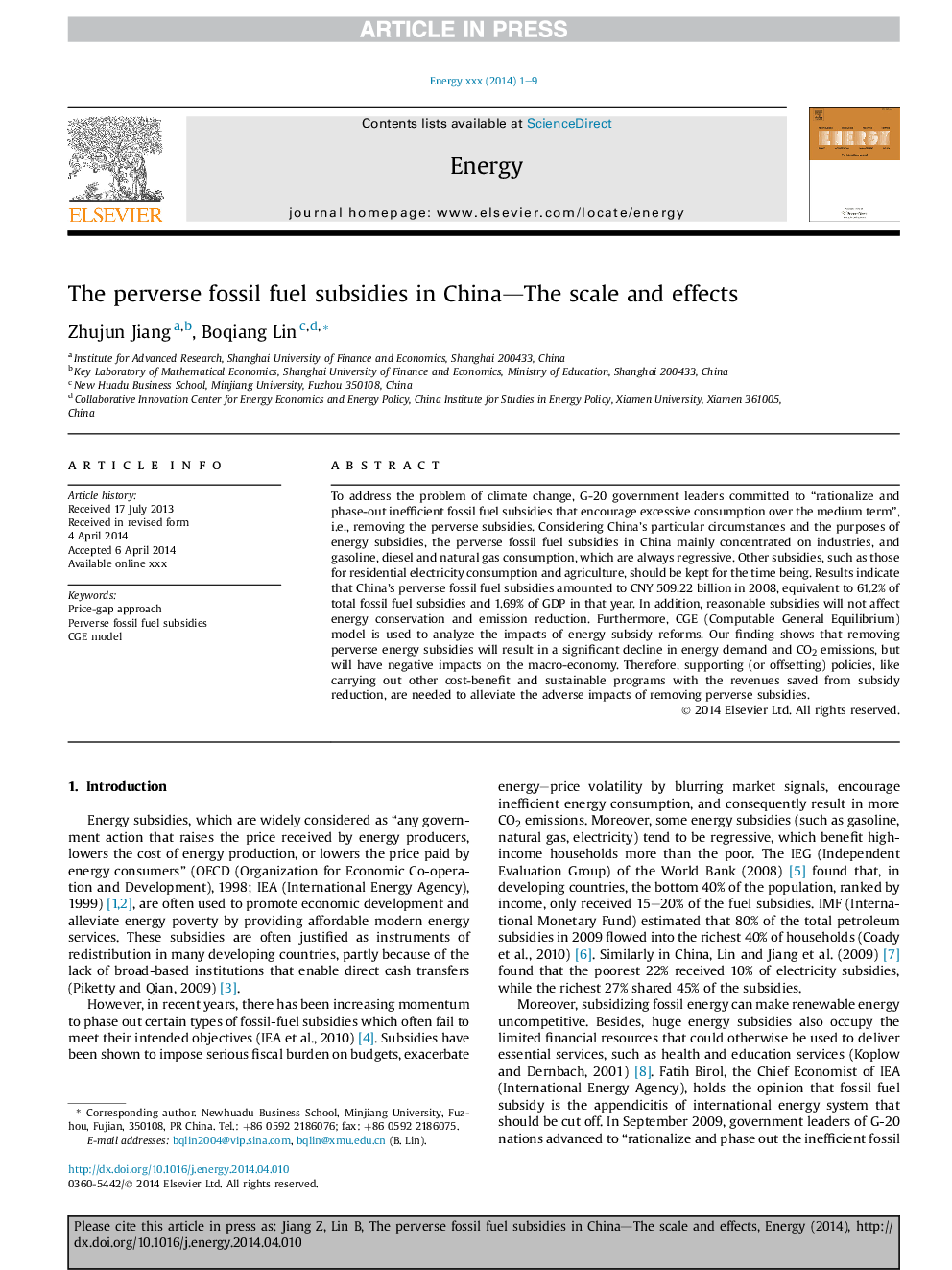| کد مقاله | کد نشریه | سال انتشار | مقاله انگلیسی | نسخه تمام متن |
|---|---|---|---|---|
| 8077701 | 1521476 | 2014 | 9 صفحه PDF | دانلود رایگان |
عنوان انگلیسی مقاله ISI
The perverse fossil fuel subsidies in China-The scale and effects
ترجمه فارسی عنوان
یارانه های سوخت فسیلی چین در مقیاس و اثرات
دانلود مقاله + سفارش ترجمه
دانلود مقاله ISI انگلیسی
رایگان برای ایرانیان
کلمات کلیدی
موضوعات مرتبط
مهندسی و علوم پایه
مهندسی انرژی
انرژی (عمومی)
چکیده انگلیسی
To address the problem of climate change, G-20 government leaders committed to “rationalize and phase-out inefficient fossil fuel subsidies that encourage excessive consumption over the medium term”, i.e., removing the perverse subsidies. Considering China's particular circumstances and the purposes of energy subsidies, the perverse fossil fuel subsidies in China mainly concentrated on industries, and gasoline, diesel and natural gas consumption, which are always regressive. Other subsidies, such as those for residential electricity consumption and agriculture, should be kept for the time being. Results indicate that China's perverse fossil fuel subsidies amounted to CNY 509.22 billion in 2008, equivalent to 61.2% of total fossil fuel subsidies and 1.69% of GDP in that year. In addition, reasonable subsidies will not affect energy conservation and emission reduction. Furthermore, CGE (Computable General Equilibrium) model is used to analyze the impacts of energy subsidy reforms. Our finding shows that removing perverse energy subsidies will result in a significant decline in energy demand and CO2 emissions, but will have negative impacts on the macro-economy. Therefore, supporting (or offsetting) policies, like carrying out other cost-benefit and sustainable programs with the revenues saved from subsidy reduction, are needed to alleviate the adverse impacts of removing perverse subsidies.
ناشر
Database: Elsevier - ScienceDirect (ساینس دایرکت)
Journal: Energy - Volume 70, 1 June 2014, Pages 411-419
Journal: Energy - Volume 70, 1 June 2014, Pages 411-419
نویسندگان
Zhujun Jiang, Boqiang Lin,
